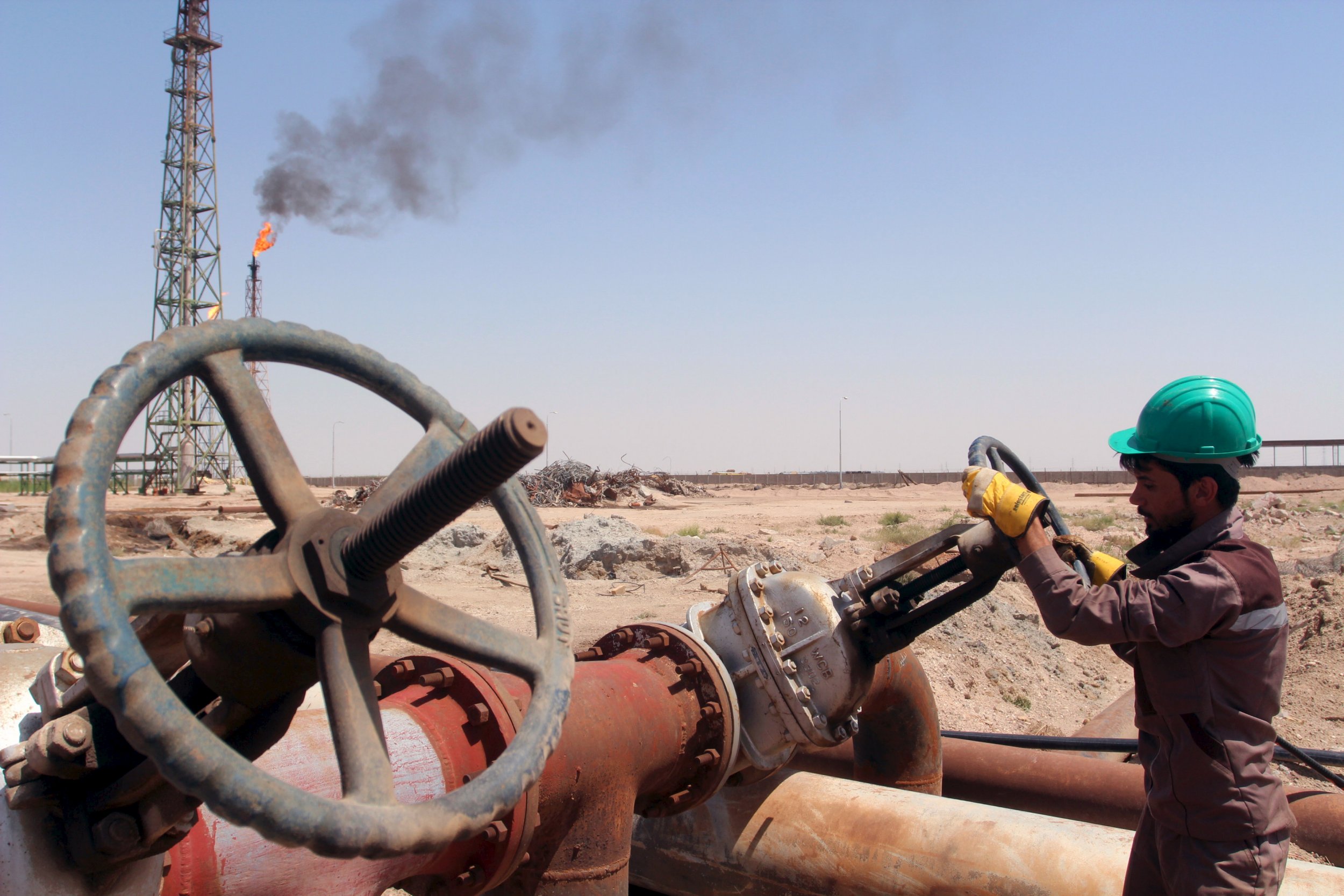
Iraq is exporting around 3.3 million barrels of oil a day from Basrah in the south and around 500,000 barrels from the Kurdish region through Turkey. However, despite the record levels of export and production, the country's finances are in a worse shape than a few years ago when production was around 30 percent less.
Low oil prices are already having far-reaching consequences on countries whose economies are largely or almost entirely reliant on oil. Iraq has been more vulnerable than most. Large public sector expansion in the bumper years of oil at $100 per barrel, economic mismanagement, the cost of war on the militant group Islamic State (ISIS) and large-scale corruption are all leading to the possible end of Iraq as we know it.
On Monday, Iraqi politicians and energy executives will descend on London for three days to attend the CWC Iraq petroleum conference. The annual forum usually brings two disputing factions together: the central government, which wants to centralize control over oil, and the Kurdish Regional Government (KRG), which, in the absence of oil and gas laws, went ahead with its own natural resources development despite the central government's opposition.
The Kurds have adopted a type of contract called a production sharing contract (PSC), allowing the oil companies to have a share in the oil profit. Meanwhile the federal government in Iraq has adopted a different approach by granting service contracts and making international oil companies (IOCs) a service provider.
There are few fundamental differences between the two contracts but the main one is that the PSC allows the IOC to take more profit when oil prices rise and less when its low. The service contract, on the other hand, is a fixed fee plus cost regardless of the oil prices.
When oil was above $100 a barrel, Baghdad said the Kurdish contracts were too generous and did not recognize them. However, since oil prices have crashed, the table has turned. The service contract Iraq entered into with the IOCs worked when oil prices were hovering above $100 a barrel, but since oil prices collapsed to $30-40 a barrel, Iraq has been struggling to pay the oil companies for their investment. The fixed cost is forcing the central government to rethink—since April 2015, it has been trying to renegotiate its service contracts with the IOCs.
In this year's conference, the main topics of discussions will probably center on the recent IOCs development costs, which has been revised down to around $9bn USD for from $23bn. Iraq has asked oil companies to rein in their budgets for developing the country's oil resources. However, so far no agreement has been reached on the level of spending. IOCs are not happy with the cost cutting measures but the Iraqi government is going ahead regardless.
Amid the political instability, the Iraqi oil minister, Adil Abdul Mahdi, resigned March 24 over the failed attempts at the cabinet reshuffle that Prime Minister Haider al-Abadi has been trying to implement, which is part of the Iraqi PM's planned reforms. Mahdi will not be attending the London conference, nor will his counterpart from the KRG.
As the hot topic of oil will be discussed in London, the Iraqi parliament and cabinet remains in paralysis. Iraq's political disputes are nothing new but the low oil price has certainly exacerbated the situation—as the government struggles to balance its books, the political divisions have widened. In recent days Baghdad has seen some of the worst security breaches in recent years as a number of car bombs have killed hundreds of people.
Years of mismanagement and corruption have led Iraq to be almost entirely reliant on oil revenues for its income. A sharp drop in revenues due to low oil prices and the cost of fighting ISIS spiralling out of control are stretching the country's finances. The Iraqi central bank has been trying to prop up its currency since the fall of oil prices and has gradually succumbed to allowing dinar devaluation, leading to more public resentment and instability. Hard times are ahead for Iraq, and there is no end in sight for the turmoil and political strife.
Shwan Zulal is a political risk and energy analyst and fellow at King's College's European Centre for Energy and Resource Security (EUCERS).
Uncommon Knowledge
Newsweek is committed to challenging conventional wisdom and finding connections in the search for common ground.
Newsweek is committed to challenging conventional wisdom and finding connections in the search for common ground.
About the writer
To read how Newsweek uses AI as a newsroom tool, Click here.








